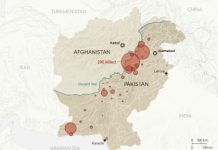At the recent Shanghai Cooperation Organisation (SCO) summit, Prime Minister Shehbaz Sharif brought up the issues of Kashmir and Balochistan, even though the SCO’s charter does not allow for the discussion of bilateral disputes. This action, taken in the presence of Indian Prime Minister Narendra Modi, served to highlight these long-standing issues on an international platform.
Prime Minister Sharif’s decision to raise these issues at the SCO summit was a significant diplomatic move. While the SCO is primarily focused on regional security and economic cooperation, and explicitly avoids taking up bilateral disputes, this was an opportunity to draw the attention of world leaders to what Pakistan views as critical humanitarian and security concerns. By speaking out, Sharif ensured that the issues of Kashmir and Balochistan were not sidelined, even if no formal resolution could be expected from the summit itself. His remarks underscored Pakistan’s perspective that lasting peace in the region is impossible without a just and lasting solution to the Kashmir conflict.
The Kashmir issue remains one of the world’s most enduring and dangerous flashpoints. A resolution is essential for the stability and prosperity of the entire South Asian region. While both Pakistan and India agree that the issue must be resolved bilaterally, their inability to find common ground has led to a cycle of conflict, mistrust, and immense suffering for the people on both sides of the border. This continuous state of tension diverts valuable resources that could otherwise be used for economic development, poverty alleviation, and improving the lives of citizens. The people of both nations, particularly the poor, are the ones who bear the greatest burden of this prolonged geopolitical struggle.
For decades, the United States and other global powers have been hesitant to play a direct role in mediating the Kashmir dispute. This reluctance is often attributed to their own vested interests in the region, which include maintaining a strategic balance of power and cultivating relationships with both India and Pakistan without alienating either. The lack of external pressure to find a solution has allowed the conflict to fester, perpetuating the cycle of violence and instability. A genuine, lasting resolution will require not only bilateral dialogue but also a shift in the international community’s approach, which has so far been marked by cautious non-intervention. The resources spent on military preparedness and cross-border skirmishes could instead be directed toward education, healthcare, and infrastructure development, transforming the lives of millions.

















